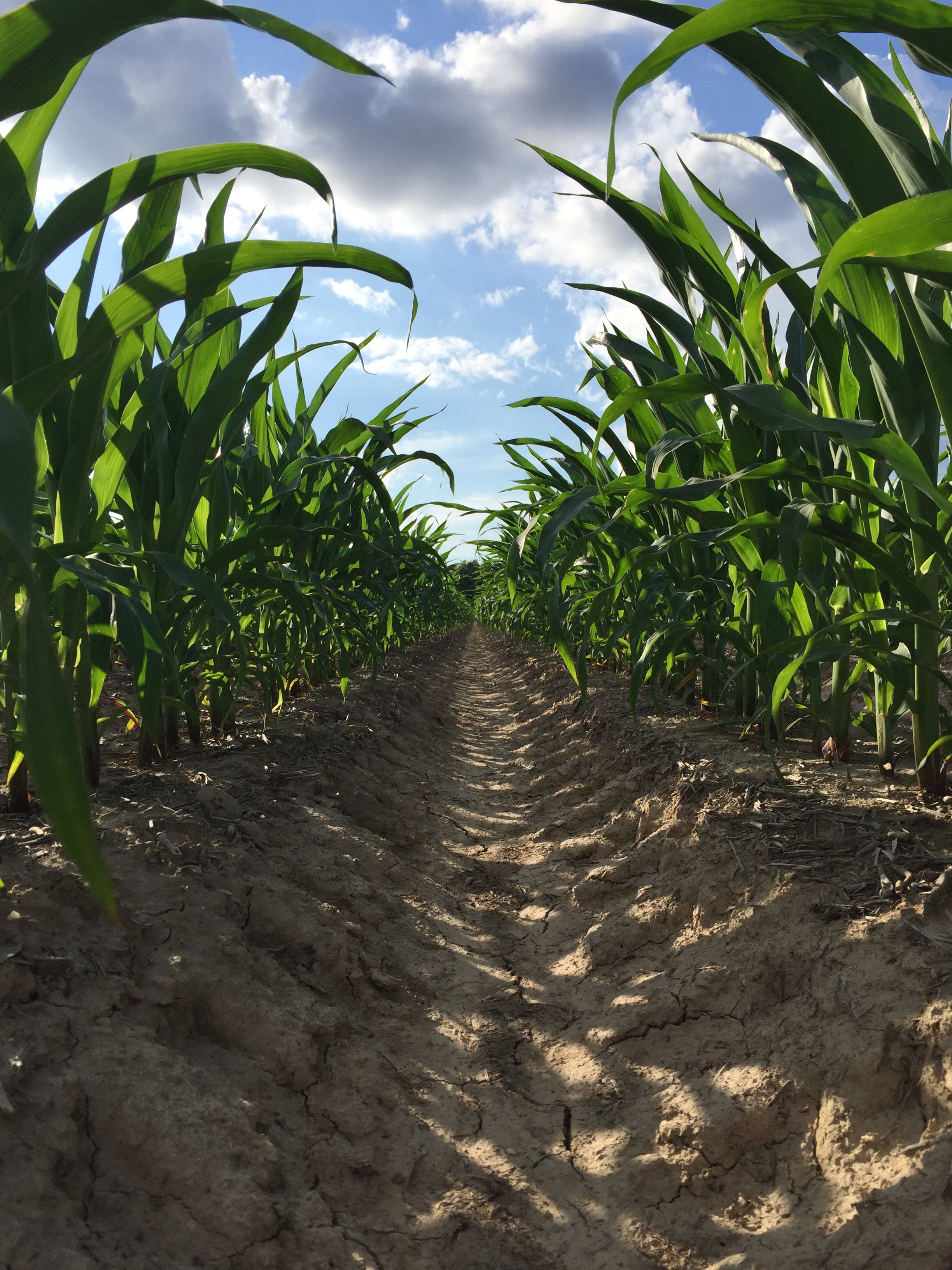This is the second in a series of three posts developing our mission statement: Promoting healthy food choices for all budgets by highlighting the nutritional value and sustainability of non-organic agriculture.
As a planet, we are growing. The world’s population is steadily rising and will reach 9.5 billion people by the year 2050. Life is good, right? And more life is better!
Medical and Lifestyle Advancements
Today, we have a deeper understanding of personal health and how to teach others about healthy lifestyles. As a result, we’ve seen a decrease in infant mortality and an increase in overall life expectancy. Again, more life is better!
my grandfather holding me
If agriculture remains the same, we will not be able to feed the world's ever growing population. That's a problem. Thankfully, innovative scientists are constantly looking for answers.
happy Kenyans
A Solution
Guess what? They have found a great one: GMOs (genetically modified organisms). However, the solution has many farmers wondering how much science is necessary to assure consumers of the safety of GMOs.
a maturing field of genetically modified corn photo credit: Morgan Baugh
Knowledge is Power
The knowledge of how to isolate chromosomes and manage their placement has given us the ability to facilitate nature's process in a faster, more controlled and safer way than ever before. Humans have been nature's stewards for thousands of years by using creative processes like grafting branches from one tree on to another and by cross pollinating plants.
Trying to Perfect the Science
In more recent years, before chromosomes were specifically identified, scientists blasted plants with radiation and chemicals to try to break down the chromosomes. These mutations fall under the options that Certified Organic famers may choose.
my daughter in a field of genetically modified cotton
However, scientists have discovered a way to isolate individual chromosomes in DNA and remove them from one naturally occurring organism and insert them into the DNA of another naturally occurring organism. It’s quite miraculous!
What is it?
So what is the science? I watched a short clip by Piffle and discovered that the revolution of genetic modification is a much more specific and intentional process than any other form of plant husbandry ever used.
a common food label
Effective Marketing
Seeing non-GMO labels on so many products misleads consumers into believing that GMOs are somehow harmful, or should be avoided. But what is the science behind GMOs? A plethora of independent scientific studies have been published over the 20 years that genetically engineered crops have been grown and harvested in the US and not a single instance of harm has come to any human or animal. These scientific studies have been rigorously scrutinized by peer reviews and affirmed in their findings.
No Health Effects Shown
Critics would have us believe that GMOs have caused an increase in obesity, Type II diabetes, autism, and many food allergies. However, a study by the National Academies of Sciences, Engineering and Medicine was recently conducted comparing the health of North Americans who consume many GMOs in their diet with Europeans who rarely consume GMOs. The study concluded that there was no greater incidence of Type II diabetes or obesity. Also, the incidence of Autism Spectrum Disorder and Celiac Disease, which makes humans intolerant to gluten, increased in both populations equally.
A Converted Supporter
Mark Lynas was a strong Greenpeace activist supporting non-GMO agriculture until he began to take a serious look at the science behind GMOs instead of being led by his assumptions. After significant research, he realized the safety, environmental sustainability and potential for global health solutions that genetic engineering offered. He then presented an apologetic speech giving his full support to the science and future development of biotechnology as a way to feed the world.
a field of genetically modified soy beans ready for harvest
There are legitimate concerns about health in the world today. Having a diet that consists largely of sugars and processed foods causes a significant decline in a person's health. Living a life with little physical activity brings increased risks of heart disease and other problems. Being distant and isolated from loving relationships can cause depression and unhealthy choices. Of these legitimate concerns, there is enough science to prove that GMOs are not one of them.







